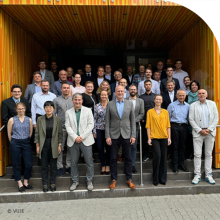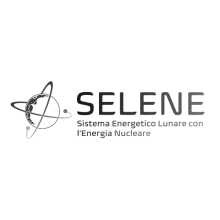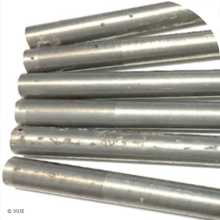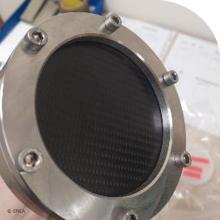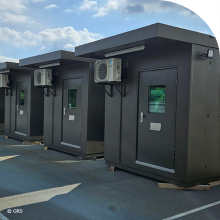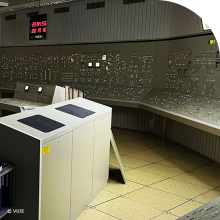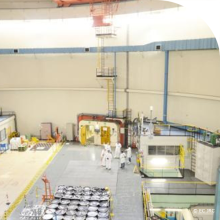News from ETSON and its members*
SafeG Final Workshop took place on 11th of September 2024 in Bratislava and was attended by 43 participants (+ 10 remotely connected). The aim of this event was to present the key results and outcomes of our 4 years effort within the SafeG project to nuclear community and young generation of researchers.
The SELENE project, funded by the Italian Space Agency, aims at advancing both technical and programmatic aspects needed to bring to industrial maturity a nuclear reactor-centered energy hub for a lunar outpost.
With the shutdown of the last German nuclear power plants, the decommissioning of these installations is now at the centre of attention. However, the impending shortage of skilled labour poses major challenges for the industry. Experts from GRS are therefore working with their partners in a research project that has just been launched to train specialists more efficiently in the future and to promote young talent in a more targeted manner: A hybrid learning platform with VR and AR elements and an innovative AI application are intended to optimise dismantling processes and prepare the industry for the future. In addition, a digital platform is being developed to make licensing processes more transparent and efficient.
A unique project was carried out aimed at identifying steam generator tubes with operationally induced defects from the history of each unit. The selected tubes were then extracted, decontaminated, and preserved for future use. This effort was part of the broader decommissioning project for Units 1 and 2 at the Jaslovské Bohunice Nuclear Power Plant in Slovakia.
An improvement work of an anticoincidence gamma spectrometry system for the detection of noble gases located at the Laboratory of ENEA Research Center in Brasimone has been carried out. The interest of setting up and optimizing this instrument is linked to the analysis of the radioactive isotopes of xenon, which are of particular interest for the Comprehensive Nuclear Test-Ban Treaty (CTBT).
The Russian invasion is affecting the lives and safety of people in Ukraine on many levels. With the capture of the nuclear power plant sites at Chernobyl - which is now back under Ukrainian control - and Zaporizhia, nuclear facilities have also been included in the hostilities and have therefore increasingly become the focus of public attention. GRS has been in close professional contact with Ukrainian partner organisations for decades, whereby the security of the facilties, i.e. their physical protection, also plays a role. On behalf of the Federal Foreign Office, GRS is working with Ukrainian and national partners to implement specific measures that contribute to improving the security of the facilities there.
VUJE delivered the severe accident management workplace for Mochovce 1,2 full scope simulator and continues in new simulation model integration.
A total amount of 135 M€ has been allocated for the years 2024-2026 by the Italian Ministry for the Environment and Energy Security to revamp the national R&D program in the nuclear field. Within nuclear fission R&D, the priority and focus topics are SMRs and AMRs.
In 2023 company VUJE together with Italian company DESPE (as a leader) was awarded by European Commission - Joint Research Centre in Ispra with the Contract for providing Decommissioning services and related supplies for the JRC Decommissioning & Waste Management Programme.
As part of its longstanding cooperation with the International Atomic Energy Agency (IAEA), the European Technical Safety Organisation Network (ETSON) took the opportunity to hold a side event at the 68th IAEA General Conference which took place from September 16 to September 20 in Vienna, Austria. To inform and engage with representatives of the IAEA and its member states, ETSON President Jean-Christophe Niel (IRSN), ETSON Vice President Michel Van haesendonck and other experts of ETSON members highlighted recent and ongoing activities of the network.
Pagination
Stay informed - subscribe to our newsletter.
Copyright · All rights reserved








